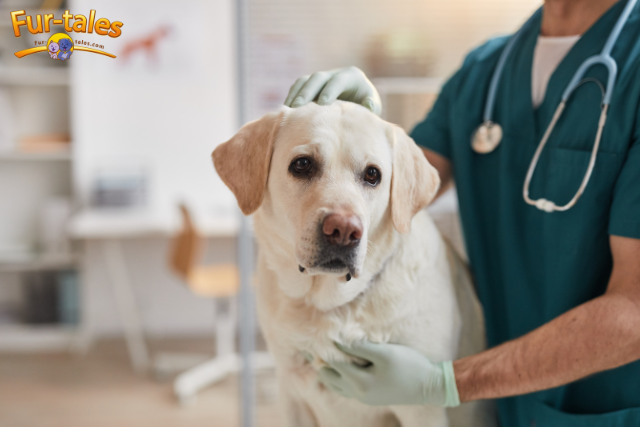
First Vet Visit Checklist for New Pet Owners: What to Expect and Bring
Welcoming a new pet into your home is a joyful and exciting milestone. Whether you’re adopting a puppy, kitten, or even an older rescue animal, your first visit to the vet is a critical step in ensuring their lifelong health and happiness.
But for many first-time pet parents, that initial trip can be overwhelming. What documents do you need? What questions should you ask? What should you expect?
This first vet visit checklist helps you feel prepared, confident, and equipped to give your new furry friend the best possible start.
Why the First Vet Visit Matters
Keywords: new pet vet visit, first vet appointment, puppy and kitten care
The first vet visit sets the tone for your pet’s healthcare routine. It helps establish a relationship with your veterinarian, creates a medical history, and ensures your pet is healthy and developing properly. For rescues or adopted pets, it’s also a chance to identify any health concerns early on.
When to Schedule Your First Vet Visit
Ideally, your new pet should see a vet within the first week of coming home. For puppies and kittens, this is especially important since they may need immediate vaccinations, deworming, or nutritional guidance.
If your pet appears ill, lethargic, has diarrhea, is not eating, or displays odd behavior—schedule a visit immediately, regardless of the general timeline.
First Vet Visit Checklist: What to Bring
Keywords: vet visit essentials, pet appointment checklist
Here’s a complete list of items to take with you to your pet’s first appointment:
1. Pet Medical Records (If Available)
Bring any paperwork provided by the breeder, shelter, or rescue organization. This could include:
- Vaccination history
- Deworming dates
- Medical treatments
- Microchip number
- Adoption or purchase records
2. A List of Questions and Concerns
Write down anything you’ve noticed about your pet’s health or behavior. Some helpful questions include:
- Is my pet’s weight healthy?
- What vaccinations do they need?
- How often should I deworm them?
- What should I feed them and how much?
3. A Stool Sample (Less Than 24 Hours Old)
Many vets ask for a fresh stool sample to test for intestinal parasites. Use a sealed plastic bag or container, and refrigerate it if needed.
4. Any Medications or Supplements
If your pet is already on flea treatments, vitamins, or any medications, bring them along.
5. A Comfortable Carrier or Leash
For safety and ease of travel, always secure your pet in a sturdy carrier or on a leash and harness. It helps keep them calm and protects other pets at the clinic.
6. Favorite Toy or Blanket
Something familiar can help soothe your pet’s nerves in a new environment. A favorite toy or blanket with their scent works well.
7. Payment Method and Insurance Information
Bring your pet insurance card (if you have one) and be prepared to cover initial expenses. Many first-time visits include multiple services, such as vaccinations and exams.
What to Expect During the Visit
Keywords: what happens at vet visit, pet wellness check
Here’s a general overview of what your vet may do during your pet’s first visit:
Physical Examination
The vet will assess your pet’s overall health—checking eyes, ears, mouth, coat, and body. They’ll listen to the heart and lungs and palpate the abdomen.
Vaccinations
Depending on age and history, your pet may receive core vaccinations. Common vaccines include:
- Dogs: DHPP, rabies, bordetella
- Cats: FVRCP, rabies, FeLV
Parasite Screening
A fecal test checks for worms or protozoa. Flea and tick prevention may also be discussed.
Microchipping
If your pet hasn’t been microchipped yet, your vet may recommend doing it during the first visit.
Nutritional Advice
Expect personalized recommendations for food type, quantity, and feeding schedule based on breed, age, and weight.
Behavior Tips
Puppies and kittens may get advice on socialization, training, teething, or litter box use.
Common Mistakes to Avoid
Keywords: pet owner mistakes, vet visit errors
- Waiting too long to schedule the visit—this can delay critical vaccinations
- Forgetting paperwork, which limits the vet’s understanding of your pet’s background
- Feeding your pet right before the visit, especially if you’re bringing a stool sample
- Not asking questions—the vet is your best resource for all things pet-related
Questions to Ask Your Veterinarian
Prepare a list before you go, but if you’re not sure where to start, here are some must-asks:
- What vaccines does my pet need and when?
- How do I prevent fleas, ticks, and worms?
- What’s the best food for my pet?
- How often should we schedule checkups?
- Is pet insurance worth it?
- When should I spay or neuter my pet?
First-Time Pet Owner Tips
Keywords: new pet care, first-time pet owner tips
- Stay calm: Your pet picks up on your energy. Keep a relaxed tone.
- Reward your pet afterward: Bring treats and give extra affection after the visit.
- Follow up: Set reminders for booster shots, medication, or follow-up appointments.
- Be patient: Young or rescued animals may be nervous. Go at their pace.
FAQs
Q: How long does a first vet visit take?
Typically 30 to 60 minutes, depending on your pet’s age, needs, and health history.
Q: How much does the first vet visit cost?
It can range from $50 to $200, depending on your location and the services provided. Always ask for an estimate upfront.
Q: Do I need to bring a stool sample?
Yes, if requested. It helps detect internal parasites and is often standard for puppies and kittens.
Q: When can I start walking my puppy outside?
Wait until your vet gives the green light, usually after completing initial vaccinations around 12–16 weeks.
Q: Should I get pet insurance before the first visit?
It’s a good idea. Some plans won’t cover pre-existing conditions, so the sooner you enroll, the better.
Image Designed Using Canva
